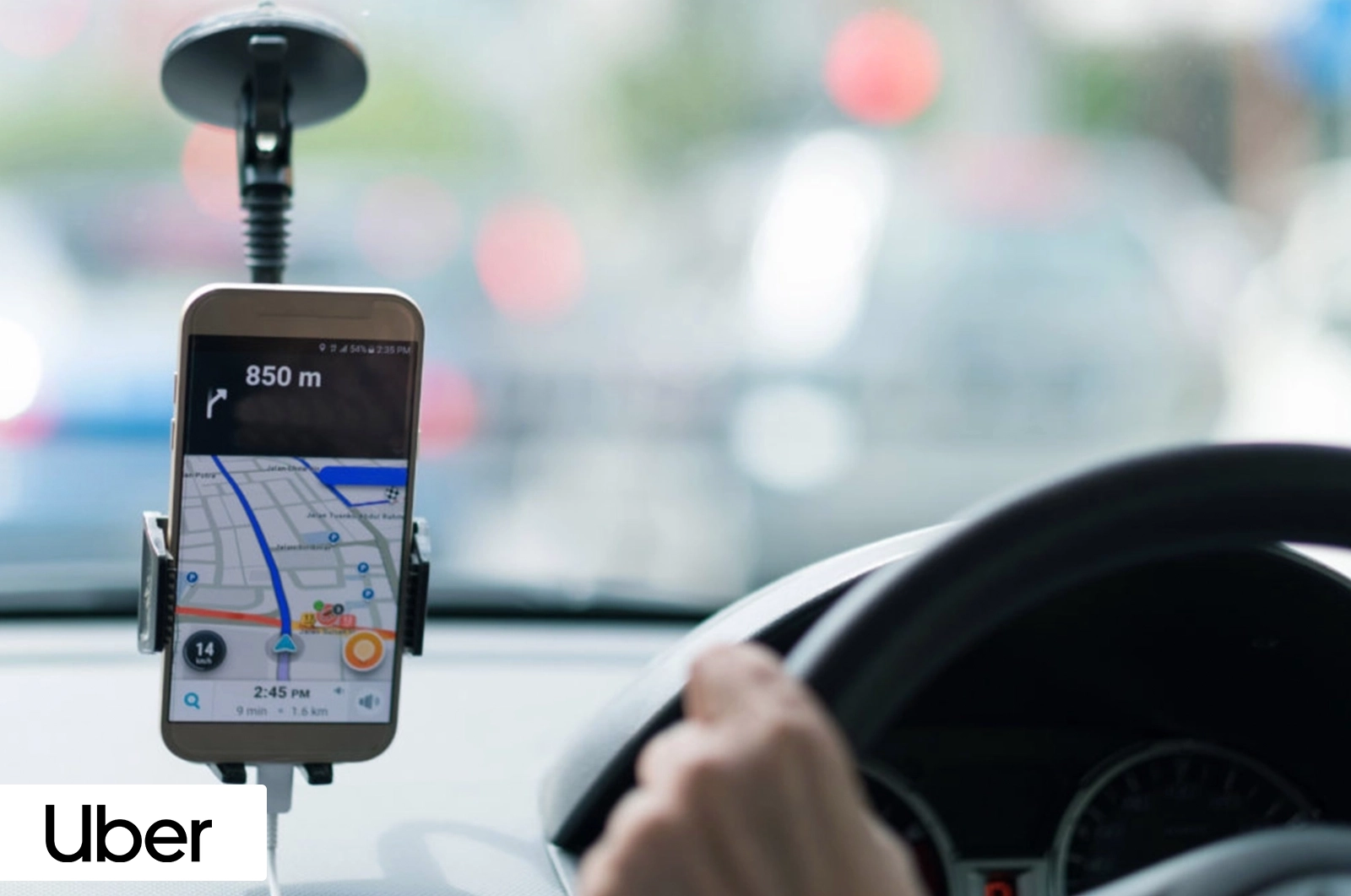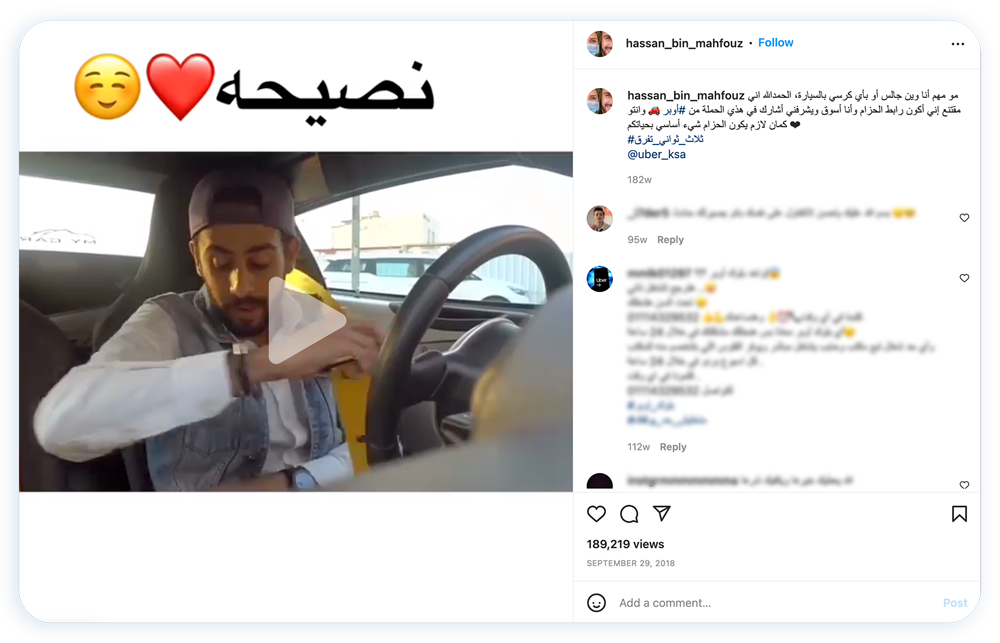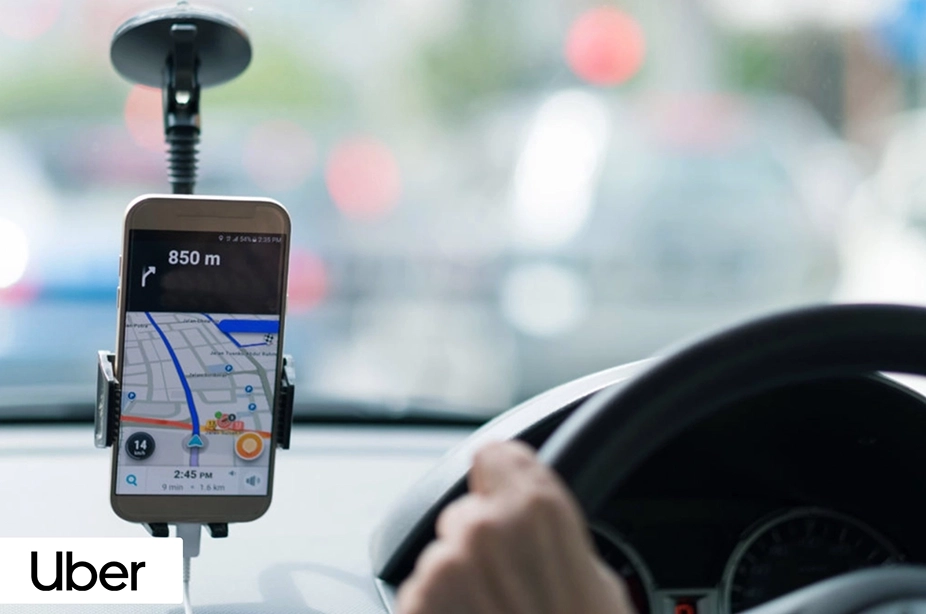The times they are A-Changin'

The challenge
Uber entered the lucrative Saudi Arabian market just as social media and influencer marketing had become the marketing go-to. However in 2016, best practices needed to be established early on so as to create a sustainable model for content that works for the brand so as to reach its different objectives in an optimal and engaging manner. We needed to create a road map across the that would equally play an important role in Saudi Arabia.

The objective
Create a long-term program for Uber’s social media and influencer marketing that is effective, sustainable and a benchmark of best practices that deliver real and consistent results.
The context
At the same time as Uber was seeking to bolster its local social media communication, the country itself was drastically changing. The Saudi Arabian government had released its economic and socio-cultural roadmap for modernization and advancement: Vision 2030. Furthermore, women had finally been granted the right to drive – ushering in a wave of women empowerment that was directly relevant to the brand.
Our strategy & work
We mapped out influencer activity over social media for Uber KSA across three levels.
Firstly, across hero campaigns where influencer activity mirrors and elevates the campaign messaging so as to increase awareness and perception.
Secondly, across hub content that is highly tactical and brand-centric, and finally across hygiene content that is always on. Furthermore, we created tools to make always-on content engaging as opposed to merely present.

We leveraged the brand’s international equity so as to impact local behavior, adapting the brand voice to reflect the voice of the people. This took the form of content creation via influences across key pillars: modernity, women empowerment, employment and entertainment.
We created a range of different content that tackled different societal issues and hot topics. A key issue was pushing for locals to consider becoming Uber drivers in a society that is notoriously status conscious and typically eschews these types on “low-brow” jobs in favor of employing low-paid migrant workers.
We worked with influencers long-term, reducing our costs while increasing believability and creating a symbiotic relationship – where relevant content was created that benefitted both the influencers and the brand’s needs.

The results
Uber as a brand became an influencer, at the forefront of Saudi Arabian discussions on modernity, employment, progress and women empowerment. The program proved cost effective by working with key influencers over the long term, delivering higher ROI and believability.
" Uber became a key driver for Saudi Arabian employment."
Employing more than 140,000 Saudi Arabian nationals – both as a part of the company as well as partner drivers. In a society that is status-conscious, our content was able to break down barriers and empower both men to take on jobs as drivers and women to use the service independently.
As a result of the fact that the company became a huge economic driver, employing hundreds of thousands of Saudi locals while simultaneously ticking all the boxes of the Kingdom’s Vision 2030 roadmap – the government bought a stake in the company, securing its growth and market share.
Effective and long-lasting relationships with influencers were created that benefit both parties – increasing influencers’ own audience bases via remarketing, delivering content that amplified both parties and increasing believability and ROI for the brand.





